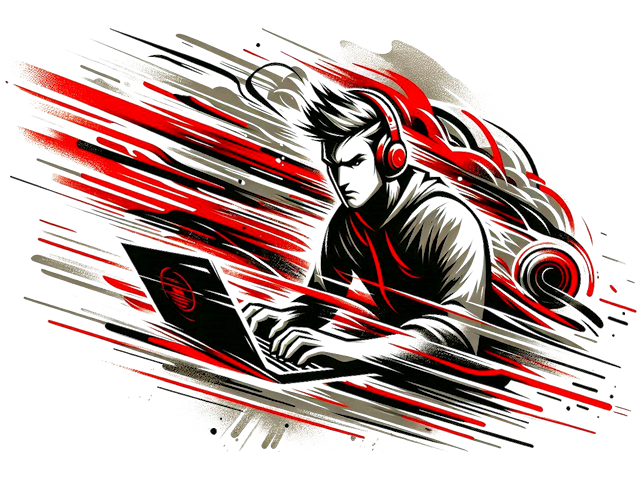 14.11.2025 - In any genre of gaming, keeping players engaged over the long term is a challenge. But in sports management games, progression systems aren't just helpful, they're essential. Whether you're managing a virtual football club, running a cycling team, or building a fantasy basketball roster, it’s the feeling of progress that keeps players logging in day after day.
14.11.2025 - In any genre of gaming, keeping players engaged over the long term is a challenge. But in sports management games, progression systems aren't just helpful, they're essential. Whether you're managing a virtual football club, running a cycling team, or building a fantasy basketball roster, it’s the feeling of progress that keeps players logging in day after day.
Well-designed progression systems give players a sense of direction, reward, and accomplishment. And this isn’t exclusive to sports simulations. Many competitive online gaming models such as Highroller use progression mechanics like leveling, unlockable rewards, and daily challenges to encourage consistent engagement and competition.
So what exactly makes progression so powerful, especially in the context of sports management titles? Let’s explore.
What Is a Progression System in Sports Games?
A progression system refers to the structured path of growth within a game. In sports management games, this often includes:
-
Advancing through league tiers
-
Improving team ratings and player stats
-
Unlocking new facilities or features
-
Earning virtual currency to expand the club
-
Completing challenges or achieving seasonal goals
Each action a player takes, like training, trading, adjusting lineups, contributes to some kind of forward movement. That sense of control and reward is what keeps players immersed in the strategic elements of the game.
Why Progression Drives Player Retention
Progression gives players a reason to come back. It taps into basic human psychology: people like to see results for their efforts.
A study published by the International Journal of Human–Computer Interaction found that players who felt a stronger sense of progression were more likely to remain active in the game over time. This reinforces the idea that users don’t just want to play. They want to achieve, and that requires a system that tracks and rewards their development.
In sports management games, this is especially important because these titles are long-form games. Matches might happen weekly, seasons can take days or weeks, and decision-making is spread out. Without meaningful progression milestones, the pacing can feel slow. But with the right mechanics in place, it becomes a long-term challenge worth sticking with.
Examples of Progression in Sports Management Titles
Let’s look at how some popular sports management games use progression systems to create engagement:
1. League Advancement
Climbing divisions or leagues is one of the most satisfying forms of progression. It mirrors real-world sports and gives players a tangible, competitive goal.
2. Facility Upgrades
Allowing users to invest virtual resources into training grounds, stadiums, or youth academies provides visible growth. This ties player decision-making to performance outcomes.
3. Player Development
Tracking individual athlete progress over time adds depth and personalization to a team. It’s rewarding to see a rookie grow into a star player under your management.
4. Seasonal Objectives
Games that offer short- and long-term goals, win X matches, reach a certain budget, qualify for a cup, encourage strategic planning and regular logins.
These mechanics help replicate the dynamic nature of managing a real sports team, and they keep players emotionally invested in outcomes that unfold over time.
How Other Game Types Reinforce Progression Principles
While progression systems are core to sports management, they also show up in many other genres, especially in casual and social games. For instance, platforms like Highroller use elements like leveling up, coin collection, and streak-based rewards to keep users coming back daily. Though the genre differs, the principle remains the same: reward meaningful participation and make progress visible.
This crossover in game design shows that progression isn’t tied to one type of gameplay, it’s a universal strategy to keep users motivated.
The Role of Virtual Currency and Rewards
In many sports management games, progression is tied closely to virtual currencies or resources. These allow players to:
-
Scout or buy better athletes
-
Improve staff or coaching
- Access premium tactics or analysis tools
Giving players options to earn and spend coins (not money) through smart management decisions adds an economic layer to the game. This increases complexity and strategic depth, while offering a constant sense of movement forward.
Creating the Right Balance
A great progression system keeps players moving—but it shouldn’t be too easy or too hard. Striking the right balance between effort and reward is key. If players advance too quickly, the challenge disappears. If it takes too long, frustration builds and interest fades.
Games that provide early wins, followed by gradual, satisfying difficulty curves, tend to retain players far better than those with flat or punishing progression.
Community and Competition Add Fuel to Progression
Progression becomes even more powerful when players can compare their status with others. Leaderboards, ranked seasons, or head-to-head matchups give users something to strive for.
This social element is critical—it turns individual goals into shared milestones, and makes the sense of accomplishment even more rewarding. That’s why many online games, including Highroller and top-tier sports sims, pair progression with visible ranking systems and seasonal challenges.
Final Thoughts
In sports management games, progression isn't just a feature—it’s the foundation. It drives engagement, adds depth, and creates long-term value for players. Whether you're competing in a football league, managing a fantasy roster, or building a baseball dynasty, the thrill of progress is what keeps the experience alive.
And the smartest games in any genre, including user-focused platforms like Highroller, understand that rewarding progress is what builds loyalty, satisfaction, and community.




